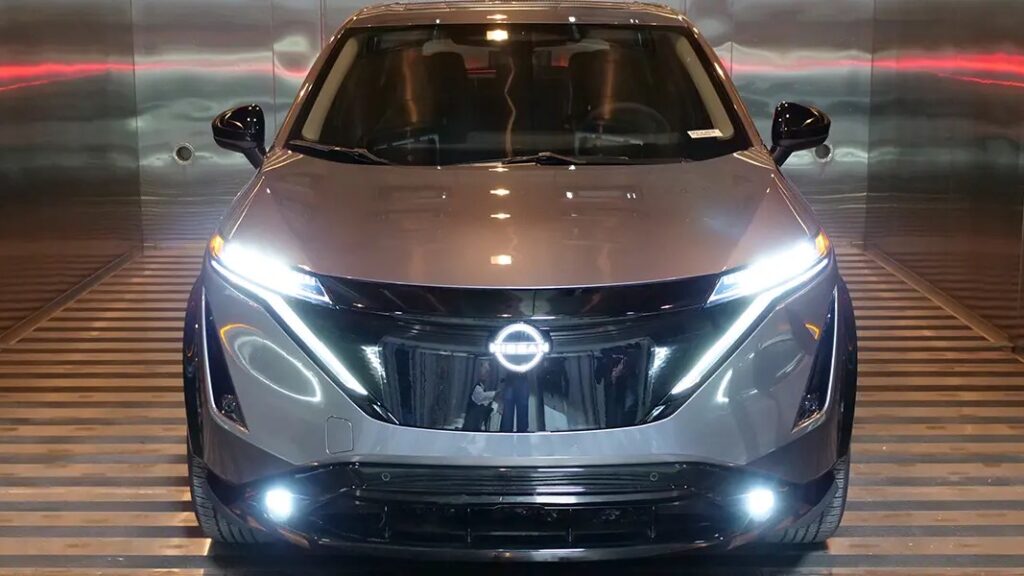Modern EVs and Temperature Management
- Newer electric vehicles (EVs) do not experience the same range loss or degradation due to extreme temperatures as older models did
- Advancements in heat pumps, battery heaters, and battery chemistries have contributed to this improvement
- Automaker testing, such as Nissan’s approach with the Ariya EV, plays a significant role
Electric vehicle batteries operate optimally within a specific temperature range, but today’s EVs are designed to function efficiently in both hotter and colder climates.
Nissan, for example, utilizes thermal-management hardware in its vehicles and conducts rigorous testing to validate its effectiveness.
The Nissan Ariya crossover employs liquid cooling for its battery pack in hot weather and a battery heater in cold conditions. Additionally, a heat pump helps minimize range loss in cold weather, a feature also found in popular Tesla models like the Model Y and Model 3.

Nissan Ariya cold temperature testing
Major automakers, including Nissan, subject their new vehicles to testing in controlled environments to assess performance under extreme temperatures. Nissan’s Detroit-area technical center features a climate-controlled chamber capable of simulating temperatures ranging from -40 degrees Fahrenheit to 176 degrees Fahrenheit.
In a 24-hour cold soak test conducted in 2024, an Ariya maintained its charge level at -4 degrees Fahrenheit without being plugged in or using the battery heater, showcasing the effectiveness of its thermal-management system.
Owners are advised to keep their EVs plugged in to charge and pre-heat the cabin without depleting the battery. EVs, unlike internal combustion engine vehicles, warm their interiors quickly due to their inherent design, according to Nissan.

Nissan Ariya security patrol vehicle used at automaker’s Arizona proving ground
Automakers prioritize high-temperature performance in modern EV development. Nissan, for instance, utilizes Ariya SUVs for security patrols at its Arizona proving ground, replacing gasoline vehicles with electric ones to operate in extreme heat conditions. These Ariya EVs have logged over 30,000 miles in temperatures exceeding 115 degrees Fahrenheit, demonstrating their durability.
Enhanced testing in extreme temperatures and the widespread use of heat pumps and related technologies are yielding positive outcomes. Recurrent, a platform that analyzes EV driving data, reports that popular EV models now retain 80% of their peak range in freezing temperatures, based on data from over 18,000 vehicles in the U.S.
While individual EV models exhibit varying performance in cold weather, most can still achieve over 100 miles of range in freezing conditions. Even the base Nissan Leaf, with a range of 149 miles, can deliver satisfactory performance. Models equipped with heat pumps, such as the Tesla Model X and Model S, demonstrate superior cold-weather range efficiency, with an average 10% improvement.
Nissan’s evolution in incorporating thermal systems and addressing extreme temperature challenges reflects the progress made in the EV industry. The enhancements implemented in the Ariya highlight the benefits of advanced thermal management systems despite the added complexity.
It’s important to note that while temporary range loss may occur in cold weather, long-term battery degradation is more pronounced in hot climates. Recent research indicates that new EVs, even with frequent fast-charging practices, exhibit minimal battery degradation compared to earlier models.

